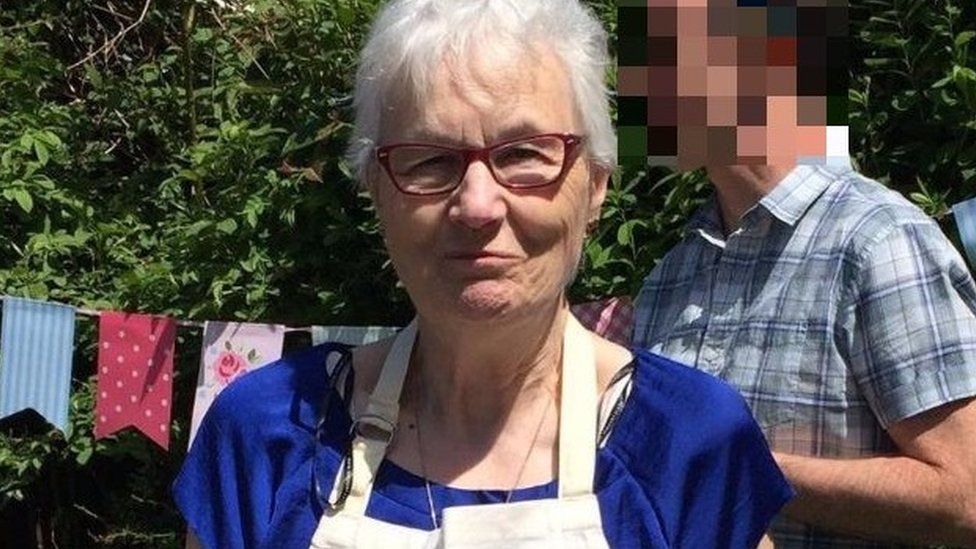Older victims murder risk 'unrecognised', academic warns
- Published

Opportunities are being missed to spot victims aged over 60 that are at risk of being killed by a loved one, an academic has warned.
A quarter of domestic homicide victims from 2010 to 2015 were over 60, Durham University's Dr Hannah Bows said.
She said systems to identify potential victims were "not fit for purpose".
The Home Office said it was "committed to tackling violence against older people" and was funding initiatives as well as conducting reviews.
Dr Bows said people older than 60 account for 18% of the UK population but 25% of domestic homicide cases.
The assistant professor in criminal law studied figures from all UK police forces from between January 2010 and December 2015, and found:
- There were 221 cases of domestic homicide with a victim who was older than 60
- 67% of victims were female
- In 46% (102) of cases, the perpetrator was a partner or ex-partner
- In 44% (97) of cases, the perpetrator was an adult child or grandchild
- The majority of victims (84%) were killed in their own home
- The most common methods of killing were stabbing (36%), strangulation (16%) and assault with a weapon (11%)
Dr Bows said: "It is clear that violence against older people is much more common than we might think, and better awareness and risk assessment may be needed to tackle this."
She said assessments to identify potential victims did not relate to older people.
"For example, there are a lot of questions about being pregnant or if a person has had children recently.
"An older person would tick no to those questions and they would then be seen as being less at risk, but they are not less at risk, it's just the questions aren't fit for purpose."
Domestic homicides in the UK
- Gregory Irvin, 26, was jailed for life with a minimum of 24 years for the murder of his grandmother Anne James, 74, who he stabbed more than 30 times at her home in Walsall on 28 February
- Anne Furneaux, 74, was killed at her home near Weston-super-Mare by her husband Edward, 70, who died later that day when he drove his car into a tree
- Peter Holboll, 44, admitted killing his 76-year-old mother Tamara before setting fire to her flat in Kentish Town
- Tracy Stonehouse, 51, was murdered by her husband Arthur Stonehouse, 73, at their home in Solihull
- Manfred Jaedke, 61, was murdered by his neighbour Vidmantas Svedarauskas in Boston
Dr Bows added: "Older people are less likely to be in touch with professionals who have been trained to recognise signs of domestic violence in younger women such as midwives and health visitors.
"It is therefore important that adult social services and other organisations in contact with the elderly should receive training on identifying risk in relation to domestic violence."
As well as overhaul of training and risk assessments, Dr Bows also wants to see more specific data for future studies.
'Collective effort' required
Richard Powley, head of safeguarding at Age UK, said: "This important research throws new light on a troubling and previously hidden aspect of later life, and provides further evidence that issues of domestic violence and homicide by intimate partners and family members do not disappear as we age. "
A Home Office spokesperson said: "Like other forms of abuse, attacks on older people are all too often hidden behind closed doors and so tackling it requires a collective effort, right across government and society.
"We have funded specific services which support older people, including providing £100,000 to Jackson's Lane in North London to engage older people in community-based activities to increase their understanding of well-being, harassment and domestic abuse.
"We have also asked Her Majesty's Inspectorate of Constabulary and Fire and Rescue Services to review older people's experiences of the criminal justice system.
"We will be publishing a landmark draft Domestic Abuse Bill which will help transform our response to the crime and improve support to all victims."
- Published29 October 2018
- Published6 August 2018
- Published22 June 2017
- Published10 May 2017
- Published4 January 2017
- Published18 August 2015
- Published3 November 2014